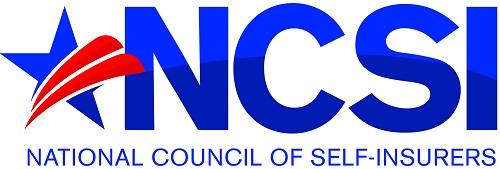Membership
Value of Membership
As a member of the National Council of Self-Insurers you will realize many benefits:
- Established in 1946, the National Council of Self-Insurers is and always has been the only national organization to represent the interests of companies, who are self-insured and/or high deductible employers.
- The membership consists of state self-insurer associations, corporate employers, group self-insurers, state self-insurance guaranty funds and professional members; such as attorneys, third party administrators and medical management groups. The corporate employers are generally multi-state companies, who represent virtually all industries; retail, hotel & hospitality, food processing, communications, steel, auto, oil, paper, chemical, computer technology, lumber products, transportation and energy.
- The Council speaks at the national level on issues affecting workers’ compensation on a national and state level. It alerts the membership of the Council, when issues being considered by Congress require broad contact with legislators and administrators.
- Through its newsletters, e-mails and web site, the Council provides an informational service to its members.
- Working with the UWC and other business associations in Washington DC, the National Council puts forth effort in the nation’s capitol when issues arise there.
- The Council has recently written to the members of the U.S. House of Representatives, stating its opposition to HR 635, which would establish a national commission to evaluate the adequacy of state workers' compensation laws and report back to Congress its recommendations. Federal oversight is inconsistent with the state workers' compensation system, and would create unintended consequences for a system that has been operating effectively for decades.
- The National Council intervenes as amicus curiae in cases of broad interest. In Sullivan vs. Barnett, before the U.S. Supreme Court, the Council, through its amicus, argued for a reversal of the U.S. Court of Appeals decision, which said the utilization review procedures of the Pennsylvania Workers' Compensation System were unconstitutional. In only six weeks after hearing oral arguments, the Supreme Court agreed with the National Council and reversed the Court of Appeals decision. This prevented the situation of self-insurers and insurers having to continue to pay medical providers during the utilization review process.
- In the late spring of each year, the Council conducts an annual meeting, which includes speakers on timely issues, major questions as well as reports on federal actions and proposals. In addition to their receiving valuable information, members have repeatedly cited the opportunity that the meeting provides for them to network. The friendships and acquaintances developed are frequently called upon by members, during the year, when they face particular problems.
Join Us!
The National Council of Self-Insurers has five types of members: state associations, corporate self-insured/high deductible employers, group self-insurers, self-insurance guaranty funds and professional members, which include law firms, vocational rehabilitation companies, TPA's, private investigation firms and the like; entities which assist self-insurers in carrying out their functions. While the Council's Board of Managers is elected solely from the employer members and state associations, professional members participate fully in the Council's activities.
We encourage you to contact us with any questions you may have.
Dues Structure
The following is the current dues structure of the National Council:
Member Class Dues
State Self-Insurers Associations $6.00 per member
Individual Self-Insured/High Deductible Employers
Over 10,000 employees $600.00
5,000 – 9,999 employees $500.00
3,000 – 4,999 employees $400.00
Under 3,000 employees $300.00
Group Self-Insurer $475.00
State Self-Insurers Guaranty Fund $475.00
Professional Member Serving Self-Insurers $700.00
|


